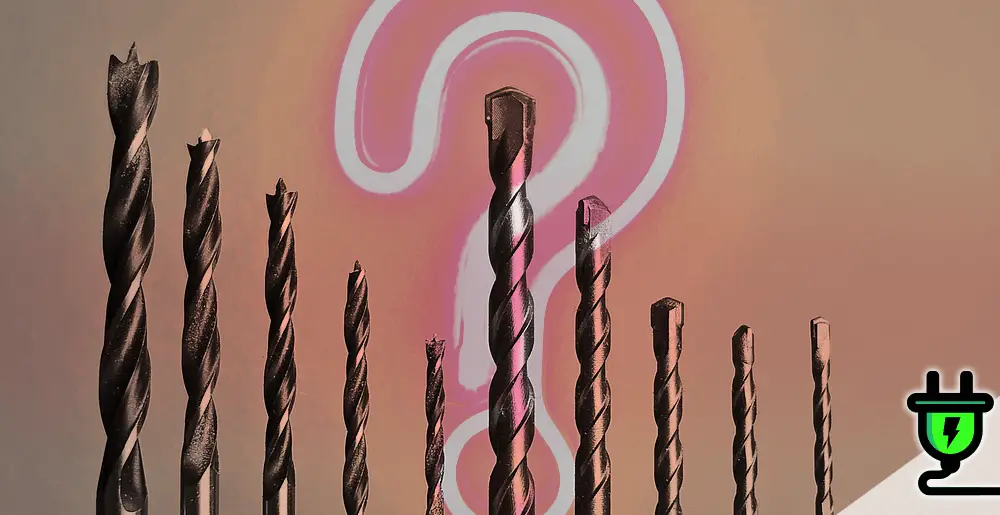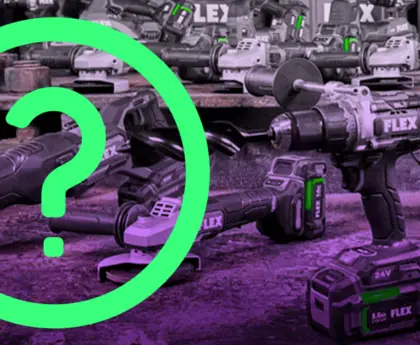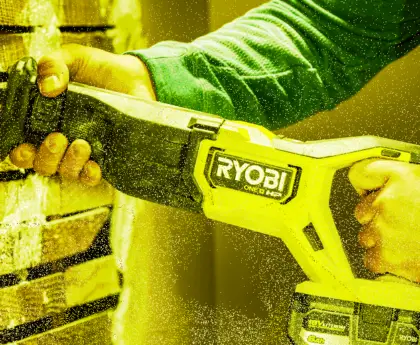Have you found yourself asking – are drill bits universal? It’s a common question, especially when faced with a variety of drilling tasks and differing brands of drills.
Not all drill bit sets are universal, but some can be used on a wide range of materials. To find the right set, make sure it includes bits that work well with the materials you need to work on. Check the compatibility labels, consider multi-purpose sets, and think about the materials you commonly use.
Fact is, there are some straightforward indicators that can help you determine whether a set is universal or not.
In this article, we will shed light on the compatibility among different types of drill bits and their respective drills, helping you make informed decisions for your future projects.
Let’s dive in to discover more about the fascinating world of drill bits.
Can Drill Bits be Interchanged Between Brands?
Truth is, drill bits may or may not be interchangeable between different brands. Depending on factors such as compatibility and design.
Compatibility of drill bits between different brands
Drill bits do not always offer universal compatibility across different brands of drills. The key factor determining the fit is the size of the drill bit and whether it matches the chuck size of your drill.
For example, a ⅜” drill bit can only work efficiently with a ⅜” drill. Even though many may assume that all bits fit all drills, this isn’t necessarily true. Different companies produce their own specific styles and designs which might pose an issue when trying to interchange them between various brands.
There’s also the matter of potential risks from using incompatible parts together; hence, it’s advisable to use bits made by your power tool’s manufacturer for seamless function and safety precautions.
The diverse world of drills hosts a wide array of available bit sets featuring multiple shapes and sizes designed for varied tasks and materials including metals, woods or even concrete.
This broad spectrum offers much-needed versatility but makes universal compatibility somewhat elusive because these variants are tailored towards specified tools or projects.
Ultimately, despite some commonality among certain models or types, remember that not all drivers will accept every kind of drill bit out there. Always cross-check your selected brand’s recommendations before attempting any exchange to ensure you don’t compromise both functionality and safety in pursuit of adaptability.
Factors to consider when interchanging drill bits
To ensure successful interchangeability of drill bits, there are a few important factors to consider. First and foremost is the compatibility between the drill bit size and the drill itself.
It’s crucial to use a drill bit that fits securely into the chuck of your specific drill model. Another factor to keep in mind is the type of material you will be drilling into. Different materials require different types of bits for optimal results.
For example, wood requires a different type of bit compared to concrete or metal. Additionally, consider the depth and width of the holes you need to create as this will determine the appropriate size and length of the drill bit needed.
Understanding the Components of a Drill
The shank of a drill bit connects the bit to the drill and comes in different sizes and shapes. The chuck is the part of the drill that holds and tightens the drill bit securely in place.
The shank of a drill bit
The shank of a drill bit is an important component that determines its compatibility with different drills. Drill bit shanks come in various sizes and shapes, such as round or hexagonal, to fit into specific types of chucks.
The size of the shank should match the chuck size of the drill for proper attachment. It’s crucial to ensure that the shank fits securely in the chuck to prevent slipping or wobbling during drilling.
By understanding the importance of the shank and choosing a drill bit with a compatible size and shape, you can ensure efficient and effective drilling results.
The chuck of a drill
The chuck of a drill is the part that holds the drill bit in place. It’s like a clamp that tightens around the shank of the drill bit to keep it secure during operation. Chucks come in different sizes and designs, but most modern drills have keyless chucks, which means you don’t need a special tool to tighten or loosen them.
Instead, you can use your hand to twist the chuck open or closed. This makes it quick and easy to change out drill bits for different tasks. Just make sure that the size of your drill bit matches the size of your chuck opening for proper compatibility.
Limitations on Interchanging Drill Bits
Certain types of drill bits may not be compatible with specific drills, and using a drill bit made by another manufacturer can pose potential risks.
Types of drill bits that may not be compatible with certain drills
Certain types of drill bits may not be compatible with specific drills. For example, masonry drill bits are designed for drilling into concrete and brick, and they may not work well with regular wood or metal drills.
Additionally, specialized drill bits like spade bits or hole saws require a specific type of chuck on the drill in order to be used effectively. It’s important to consider the intended use and compatibility of different types of drill bits before attempting to use them with certain drills.
Potential risks of using drill bits made by another manufacturer
Using drill bits made by a different manufacturer can pose potential risks. The most common risk is that the drill bit may not fit properly into your drill, resulting in poor performance or even damage to both the drill and the bit.
Using incompatible bits can also lead to less precise drilling and lower-quality results. Additionally, using non-compatible bits may void any warranties or guarantees offered by your drill’s manufacturer.
It is always best to use drill bits specifically designed for your particular brand and model of drill to ensure optimal performance and avoid any unnecessary risks.
Benefits of Using Universal Drill Bits
Universal drill bits offer versatility and convenience, allowing you to tackle a variety of tasks with just one set of drill bits. Additionally, they are cost-effective as you don’t need to buy multiple sets for different materials or sizes.
Versatility and convenience
Universal drill bits offer versatility and convenience for a wide range of tasks. These drill bits are designed to work on most common materials, including metals, woods, plastics, and concrete.
With universal drill bits in your toolbox, you can tackle different projects without worrying about compatibility issues between the bit and your drill.
The convenience of using universal drill bits lies in their ability to be interchanged with different drills as long as they fit. This means that you don’t have to buy separate sets of drill bits for each brand or type of drill you own.
Universal drill bits come in various shapes and sizes to accommodate different hole depths and widths, making them incredibly versatile for a variety of applications.
Whether you’re drilling into wood, brick, or any other material, having universal drill bits allows you to switch seamlessly between tasks without needing multiple sets of specific-purpose bits.
Cost-effectiveness
Universal drill bits offer a cost-effective solution for DIY enthusiasts and professionals alike. By investing in a set of universal drill bits, you can save money compared to buying separate sets for different materials.
These versatile drill bits are designed to work on various surfaces such as metal, wood, plastic, and concrete, making them suitable for a wide range of projects. With the ability to tackle multiple tasks with just one set of drill bits, you can maximize your tool’s efficiency and minimize the need for additional purchases.
Are Drill Bits Universal FAQs
Are drill bits universal?
No, drill bits are not universal. They come in different sizes and types to fit specific drilling needs.
Can I use any drill bit with my drill?
Not all drill bits can be used with every type of drill. It’s important to choose the right drill bit that is compatible with your specific drill model.
What factors should I consider when choosing a drill bit?
When choosing a drill bit, consider the material you’ll be drilling into, the size of the hole you need, and whether you need a specialized type of bit for certain applications like masonry or metal.
Where can I find information about which drill bits are compatible with my drill?
You can find information about compatibility between drills and bits in your tool’s user manual or by contacting the manufacturer directly for assistance.
Conclusion: Are Drill Bits Universal
Truth is, not all drill bits are universal and can be interchanged between brands. Compatibility is based on the size of the drill bit and the drill itself. It’s important to consider the specific materials and tasks you’ll be working with to ensure you have the right drill bit for your needs.






